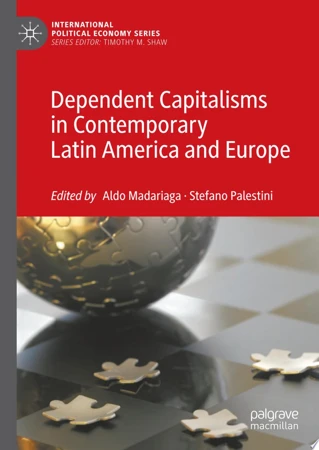Dependent Capitalisms in Contemporary Latin America and Europe

Blurb
This book contributes to the current revival of dependency approaches for the analysis of global capitalism. Reflecting on contemporary uses of the “Dependency Research Program” (DRP) and a refined analytical toolkit, it makes two distinctive contributions to this revival: the analysis of new “situations of dependency”, and the understanding of the “mechanisms of dependency”. The individual chapters draw from a wide range of cases and data from Latin America and Europe and imbricate concepts and ideas from the DRP with those of other approaches, from post-Keynesian economics to structural economics, institutional economics, regulation theory, comparative capitalisms, business politics, economic geography and critical finance studies, providing a rich array of possibilities for virtuous inter-disciplinary cross-fertilization. This volume is a valuable contribution for those interested in understanding how global capitalism works in Latin America, Europe and beyond.
Book summary
This edited volume explores how dependency theories can be adapted and applied to understand limits and possibilities for development in Latin America and Europe. It explores core-periphery relations across different sets of countries, specific mechanisms of dependency, as well as the role of race and gender in dependency analysis. Beyond its theoretical explorations and elaborations, it also empirically unpacks a range of “new” situations of dependency in Latin America, Europe and beyond, and how they relate to contemporary concerns such as commodity booms, populism, neo-extractivism, growth, and financialization. This is a timely contribution at a moment when the use of dependency theories in analyses of economic development is being revived across the world.

